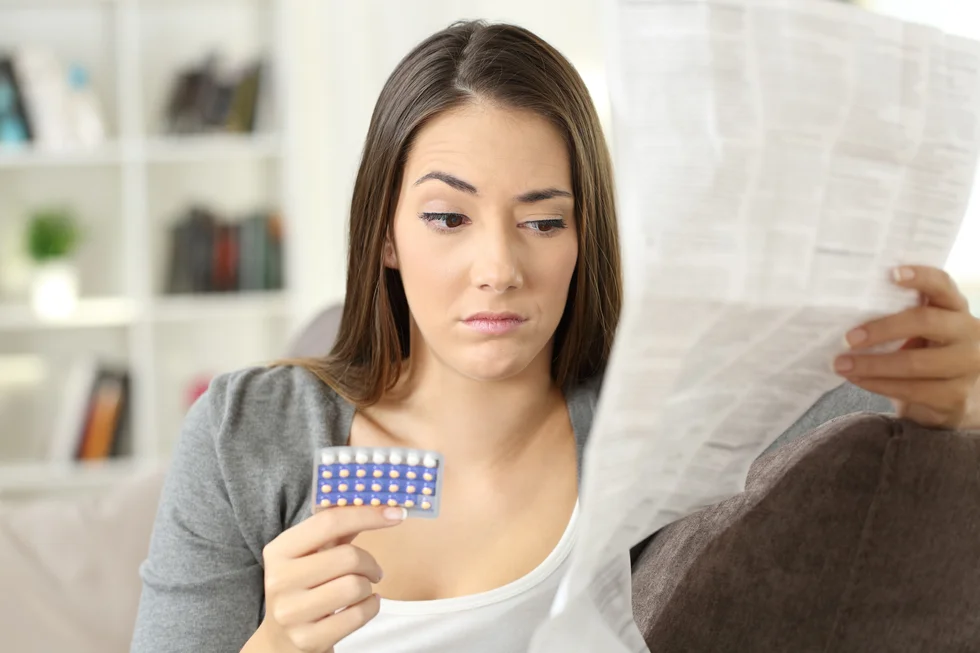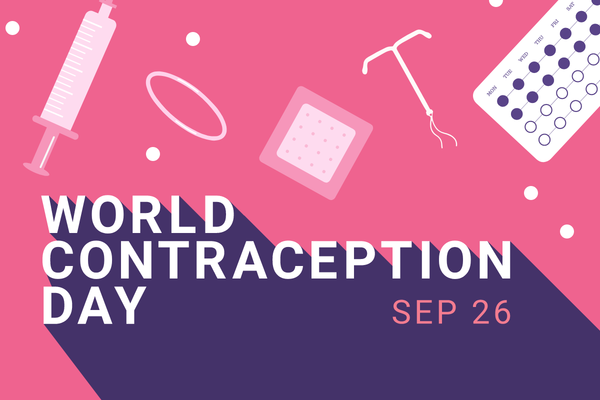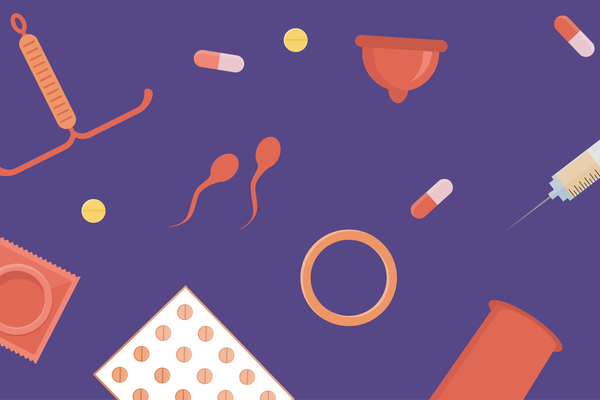You may know that weight gain and breast tenderness can be normal birth control side effects. Some birth control side effects go away over time. But some birth control side effects don't disappear and can be signs of a serious or life-threatening health condition.
Don't freak out—most people on birth control don't have any problems. But you should learn more about some birth control side effects that aren't normal and that you shouldn't ignore.
If you're questioning anything, always speak to your health care provider. Birth control shouldn't make you feel sick or uncomfortable. You have many options. Your health care provider can help you find another brand or method that works for you.
Just don't stop taking your birth control before you start a new form of contraception. Otherwise, you'll put yourself at risk of pregnancy.
Dry eye issues
It's normal to have dry eyes that can affect your vision when you take birth control. But contact your health care provider right away if you have dry eyes accompanied by discharge or a change in vision. Chronic pill use has a small risk of being associated with an increased risk of open angle glaucoma. If you have no other symptoms, get relief with over-the-counter saline eye drops.
Blood clots
Blood clots, known as venous thromboembolism or VTE, are a rare but potentially serious side effect of oral contraceptives. The risk increases if you smoke and are over the age of 35. Such blood clots usually develop in the lower legs and are known as deep vein thromboses or DVTs. But they can be fatal if they reach the lungs, in which case they are known as pulmonary emboli. Seek medical assistance if you have one-sided calf pain; lower leg swelling, pain or warmth; or shortness of breath or chest pain. The risk of any VTE varies with the type of progestin used in the pill. Smoking and obesity may also increase this risk.
Migraines
Birth control pills can trigger severe migraines in some women. A study found that a drop in estrogen levels can trigger migraines. Thus, for some women, migraines get worse in the pill-free interval (or "dummy" pill time). Already have migraines? You may notice that your headaches get worse when you're on the pill. That can happen just before your period or even later in the cycle. If you have migraines with "aura" (neurologic symptoms related to vision, such as blurred vision, temporary loss of vision or seeing flashing lights or zigzag lines), taking oral contraceptives puts you at higher risk of stroke and, in most cases, is a reason not to take birth control pills. Talk with your health care professional about what birth control options may be best for you.
Itchy yeast infections
If you take the pill and have issues like poorly controlled diabetes, a diet high in sugar or alcohol or a weakened immune system, you may get more irritating yeast infections. Try an over-the-counter vaginal antifungal cream or a prescription medication. If the problem is chronic, though, you may want to switch birth control methods.
Depression
Depression can develop because of many factors. If you have a family or personal history of mood disorders, you may be more likely to experience depression while taking the pill. A study found that this may be the case because the pill's synthetic hormones can affect the balance of certain neurotransmitters, or brain chemicals. If your depression is pill related, you may switch to a nonhormonal birth control or one that provides less hormones.
Painful intercourse
Low-dose birth control pills may be linked to uncomfortable sex and chronic pelvic pain. That may be caused by the dive in estrogen, which can lead to sexual side effects like decreased lubrication, painful intimacy and low libido. Talk with your health care provider about any pelvic pain to make sure you don't have fibroids or endometriosis. You can also ask about other birth control options.
Heavy bleeding
Many women experience intermittent spotting or bleeding while on the pill (called "breakthrough bleeding"). Usually, the longer you take the pill, the more likely this bleeding is to subside. Bleeding so heavily that you need multiple pads is not considered normal for someone on birth control pills. Heavy bleeding can lead to anemia, a condition where your blood has a lower than normal number of red blood cells. If you experience heavy bleeding, talk with your health care provider, who can test you for anemia. Your provider may suggest iron supplements, as well as further evaluation for why you are bleeding so heavily.
Other signs to contact your health care provider include:
- Chest pain or discomfort
- Severe pain in your stomach or belly
- Yellowing of your skin or eyes
- Aura (seeing flashing, zigzag lines)
- Sudden back/jaw pain along with nausea, sweating or difficulty breathing
Find out more about birth control pills.
From Your Site Articles
Related Articles Around the Web







